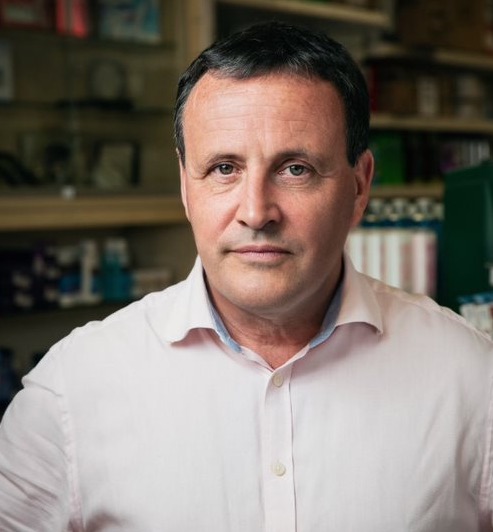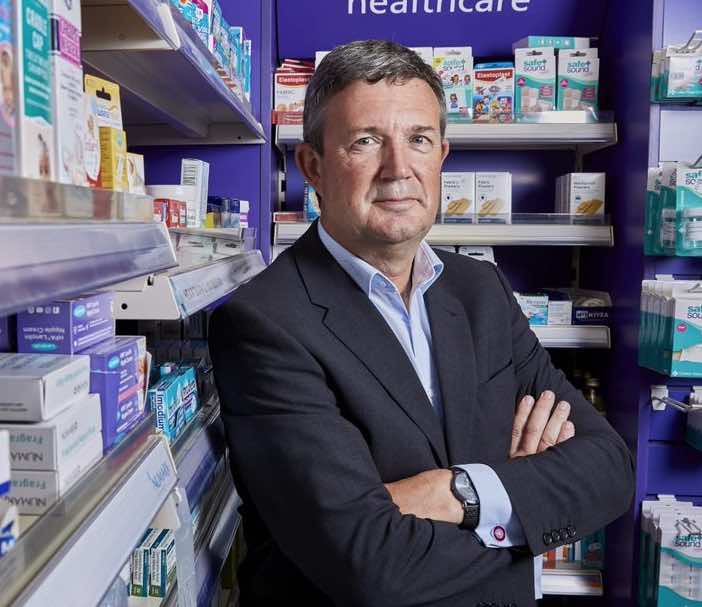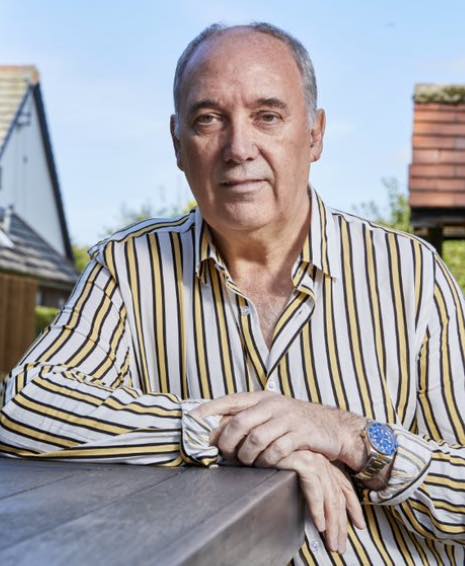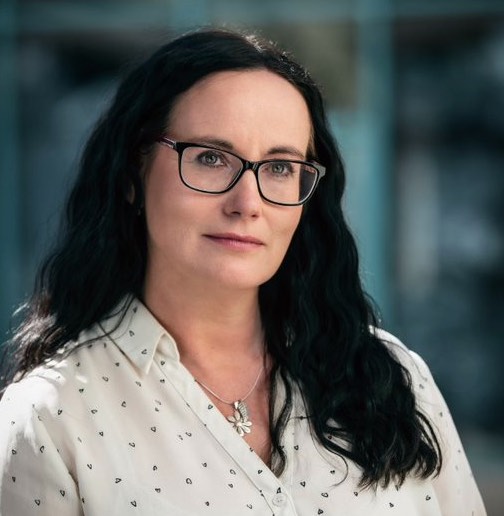Delivering the win-win-win
In Services Development
Follow this topic
Bookmark
Record learning outcomes
Central Health, the West Midlands-based community pharmacy provider company, has had a good year. Thanks in large part to its success in contracting with local authorities to deliver lateral flow testing for Covid-19 across its widening footprint, in the past year it has not only paid off the £100,000 in initial loans from its establishing LPCs, but it has also put around £1.4 million into the bank accounts of around 300 pharmacies, across more than 100 contractors, that have delivered services in its network.
With more than half a dozen active commissioned projects in smoking cessation, health and mental health screening, care staff vaccination and Covid screening for 10 local authorities, as well as discussions underway for repeats of previous years’ bespoke flu vaccinations of care staff and council workers in some areas, Central Health has a springboard for widening its service offer, geographically and in terms of deliverables.
We had meant to meet after one of the team’s face-to-face meetings, but due to the impact of Covid on the hotel venue they use regularly – the location in Staffordshire gives the four directors roughly the same distance to travel – we’ve had to switch to Zoom. The conversation flows as if the four of them were in the same room – pharmacists Len Dalton, Simon Hay and Bruce Prentice, and public health specialist Michelle Dyoss come across as very much a single team.
 Central Health Solutions Ltd has its origins in conversations almost 10 years ago between the four LPCs in the Black Country – Wolverhampton, Walsall, Sandwell and Dudley – sharing ideas about commissioners and commissioning. Then the conversation extended to Birmingham and Solihull, and then to Worcestershire, Warwickshire and Coventry LPCs. Len (right), who was chair of the LPC in Solihull at the time and who now chairs Birmingham LPC, takes up the story.
Central Health Solutions Ltd has its origins in conversations almost 10 years ago between the four LPCs in the Black Country – Wolverhampton, Walsall, Sandwell and Dudley – sharing ideas about commissioners and commissioning. Then the conversation extended to Birmingham and Solihull, and then to Worcestershire, Warwickshire and Coventry LPCs. Len (right), who was chair of the LPC in Solihull at the time and who now chairs Birmingham LPC, takes up the story.
“Birmingham, Solihull and the Black Country four would have one set of people going to meetings with NHS England. The idea was not to get broadsided by authorities forcing the lowest cost options for services. If someone’s got a really good rota service, for example, let’s stick it out with NHS England and encourage them to adopt the service with reasonable reward for contractors everywhere,” he says.
I’ve been a contractor for 34 years and still at it. PSNC and the RSG, they’re not looking at the bigger picture at all. We are trying to keep contractors going. The irony is that we couldn’t get lateral flow testing commissioned in Solihull. I’m paying out all this money to contractors and thinking ‘I’d love a bit of that'
Len Dalton
“That’s how it started. When provider companies started being talked about at PSNC level, we decided it would be a good idea if we had one company for those nine organisations. We started to do some work – the chairs, secretaries and chief officers. What level of funding do we need? How are we going to make this work?”
The team put together a plan, and as it was coming to fruition, Shropshire, North Staffordshire and Stoke and Staffordshire became involved. The whole idea came together in about 2015 and Central Health was born in 2017 with close to £100,000 in loans from LPCs. The first contract followed, when the company was subcontracted to run the stop smoking service in Coventry.
Central Health has expanded further since, with lateral flow testing (LFT) contracts this year - usually regular, twice weekly rapid testing for people without symptoms - for councils who see such testing as a vital part of the fight against Covid-19, including Telford & Wrekin in the west and Gloucestershire County Council in the south. In almost all cases, the contracts are running through to the end of March next year.
“We expect to expand into different areas outside the West Midlands,” says Michelle, who takes the lead on day-to-day operations. The contract with Gloucestershire is part of that development, although they do share the contract with Avon Healthcare, the provider company established by Avon LPC.
Cost efficient
The company’s success with contracts for flu vaccinations for local authority and school staff means that as services are recommissioned, councils are starting to come back to them directly. “We’re building up really good relationships with commissioners,” says Michelle. “We know we’re cost-effective; they know that we get the job done, and they know that we can turn around services very quickly – the LFT service in Dudley was turned around within a week. We’re starting to get a good reputation with commissioners and pharmacies, who know they will get the service and money back into their pharmacy.”
 “They have delivered what the council wanted,” says Simon Hay (left), the team’s ‘man in the north’. After a number of years with Boots and Co-operative Pharmacy/Well, more recently he’s been involved with LPCs, including North Staffs and Stoke, and has added this vital experience to the team. “Our contractors have seen an opportunity. Staffed up, planned up and gone for it. And they’ve had the reward. Good on them.
“They have delivered what the council wanted,” says Simon Hay (left), the team’s ‘man in the north’. After a number of years with Boots and Co-operative Pharmacy/Well, more recently he’s been involved with LPCs, including North Staffs and Stoke, and has added this vital experience to the team. “Our contractors have seen an opportunity. Staffed up, planned up and gone for it. And they’ve had the reward. Good on them.
“Whilst it’s made money for contractors, it’s also been a cost-effective service for councils, which is why it’s expanded to so many,” he says. “They’ve not had to pay for venues – the venue is already there, so they’ve increased access to patients. They’re paying per test, plus a little bit of admin to us. For them, it’s a massively cost-effective service.”
“The LFT service is a huge success from several angles,” says Len. “How we structured the whole thing, the appointment system, the media advertising, how the councils have got involved. Through Simon, for example in Staffordshire and Stoke, we’ve used LPC resources to help push contractors. It’s really worked as a team, working alongside LPCs. What we want to extract from all of these services is maximum value for the contractors, good value for the commissioners and great services for patients. That’s what we’re after.”
With the successes of the past 18 months under their belt, the company is not resting on its laurels. “The plan is absolutely not to do more of the same,” says Bruce, a former contractor with extensive project management experience, including for NHS England, who takes the lead on marketing. “Covid has had a dramatic impact, obviously, but for certain sections of society, it has led to a decline in their health. Going forward, the opportunity for pharmacy and for us is to demonstrate that if there is a need for a service in an area, community pharmacy can be a very good solution.
“It’s about finding what the new services are that councils want and how patients want to get them. We were talking about emergency contraception (EHC) earlier today. Patients might want EHC services to be more accessible, by finding out where they can get it on their smartphone, and being booked in, for instance. That’s where pharmacy can win.”
“I believe I’ve got a duty to bang the drum about services. When I’m not working for Central Health, I’m doing other stuff that’s service-related. If you’re a 25-year-old pharmacist, you’ve got a tough time ahead if you don’t embrace services”
Simon Hay
Bruce says the pandemic has created a shift in the thinking of some pharmacists too. “We are finding pharmacies that are more forward thinking in what they’re offering and what they think services can be,” he says. “They are the ones that we are able to find business for. The pharmacies that have the same mentality they’ve had for 10 years pre-Covid are not going to be able to do lateral flow testing in their environment. They’re not going to be able to do health checks in the way patients want, or sexual health services. What we’re trying to do is offer up to the councils and the commissioners the new world, and work with contractors that are ready for it.”
This sounds to me like leadership, but it’s also a recognition that the world is changing, and the way business is being done is changing too.
 Bruce (right) says the environment in the West Midlands has contributed to Central Health’s success to date: “With the support of the LPCs, it’s recognised that the way pharmacy gets involved in new services has to change. And there has to be a way locally for an organisation that can do things LPCs can’t, to hold the ring for those services ”
Bruce (right) says the environment in the West Midlands has contributed to Central Health’s success to date: “With the support of the LPCs, it’s recognised that the way pharmacy gets involved in new services has to change. And there has to be a way locally for an organisation that can do things LPCs can’t, to hold the ring for those services ”
The team haven’t always got things right, but there has been a lot of learning along the way, which all adds to the experience now vested in the team after four years of operations. A membership model was abandoned after a year as administratively complex as well as antipathetic to engagement with large multiples. An early contract for stop smoking services in Stoke-on-Trent, in which Central Health employed a smoking cessation advisor as part of the deal, was “probably the biggest mistake we ever made”. The council imposed a new IT system, promised referrals didn’t arrive; they ended up losing more than £30,000.
Health checks in Sandwell which followed went well. Flu training across the patch, advertising for the service on buses, followed. An outreach flu vaccination service in libraries last year in Worcestershire and Herefordshire was a notable success, but the LFT service has been the massive breadwinner that has dramatically changed the fortunes of Central Health.
“In year one, 2017, we lost £40,000. In year two, we lost another £20,000,” says Len, who deals with all the financials, including invoicing, collecting the money and paying pharmacies for the services delivered. “Last year, we made about £170,000, which is how we could pay back the LPCs. Hopefully, we will make another £100,000 in the current financial year.”
The team are not about to retire on the profits, however. Bruce says: “The money we put in the pockets of the contractors is a considerable sum, but the admin that goes with that is huge. Chasing payments, making sure contractors have submitted their invoices, claiming what they are entitled to. Pharmacists are good at clinical services; admin is not their forté.”
The directors are currently paid an hourly rate for their work. Against that £1.4m earned by contractors last year, the team of four, with their part time ‘hero’ administrator Emily Carter cost around £70,000.
“I’ve been in the profession for nearly 40 years. Pharmacy has paid for everything in my life. I’m at the point in the curve where it’s my job to help others, to make sure the profession sticks around”
Bruce Prentice
For that, Bruce says, you get a team focusing on the things that matter, who have learned a lot about local commissioning and who have, collectively, experience that is hard to match. “We have to expand on the basis of it has to be worth the contractors’ while, but the admin costs have not got to be over-burdensome. For every pound for contractors, 5p is covering the admin costs of the company – that’s quite an achievement.”
 The team’s experience is recognised by commissioners, as is their track record of delivering on contracts. While tendering processes are designed to create a level playing field, the pandemic has created situations where contracts have been rolled forward as a matter of expediency. “Some want us to deliver rather than going back out to tender again; they come straight to us,” says Michelle (left). “They know we’ve delivered before; we have the ability to access all community pharmacies, not just a particular company. And if we do have to go to a tendering process – and most of the time we do – at least now they know our name, and they know that we deliver.”
The team’s experience is recognised by commissioners, as is their track record of delivering on contracts. While tendering processes are designed to create a level playing field, the pandemic has created situations where contracts have been rolled forward as a matter of expediency. “Some want us to deliver rather than going back out to tender again; they come straight to us,” says Michelle (left). “They know we’ve delivered before; we have the ability to access all community pharmacies, not just a particular company. And if we do have to go to a tendering process – and most of the time we do – at least now they know our name, and they know that we deliver.”
But she says the bigger spin off might be recognition for the sector itself. “It’s not just that they’re thinking about us, they’re thinking about pharmacy,” she says. “When Dudley started the LFT service, other commissioners and local authorities cottoned onto it. They hadn’t been thinking about community pharmacies before.”
Len says the biggest lesson he’s learned is that committees and commissioners have a high turnover. And when faces change, so do ideas and expectations. This means there’s still work to do to convince LPCs they were right to set up Central Health Solutions in the first place. “We were going to be a friendly organisation for all of the LPCs; they’d lend us money to get started, but they wouldn’t worry about it. It’s been a learning curve in terms of how to deal with some of the personalities at individual LPC level.
“We have good relationships with all the LPCs, but they have different ideas about how we should work and be financed. We’ve said to them increasingly that you need us for the services we’re developing for you, and the conversation has always been, ‘you’ve got our £100,000, you need to pay us that back and you can do everything else for free’. They made it quite difficult for us, and we succeeded in some way with many of the LPCs’ support and despite a few who for whatever reason have chosen not to support us. We’ve put them on the back foot this year, because we’ve actually made some money and we’ve paid them back. Now they want to know whose money we’ve got now.”
Simon believes that in the current climate, there needs to be more of a partnership between LPCs and successful provider companies like Central Health. He has been surprised to find that councils are quite happy to pay for services if they believe they are getting value for money, and an organisation like Central Health can put a value on things councils are prepared to pay that LPCs might have done for free.
“I don’t think a lot of LPCs would have the in-house capacity to deal with the mire we deal with,” he says. “Chasing contractors to deliver services, answering queries, invoicing commissioners and then reimbursing contractors. LPCs shouldn’t be saying to people ‘we will do this for you’. They should be saying ‘speak to this organisation who can do a professional job for you’. I don’t think we’ve quite got there yet with all of them.”
“I’ve got a huge passion for public health and community pharmacy, and for marrying the two together. Pharmacy is there, on the high street and in the community, able to deliver and able to support the public health agenda. We can continue to do that”
Michelle Dyoss
The relationship with multiples is complex too. “We were originally going to be a membership organisation and the articles and rules were determined to satisfy the Company Chemists’ Association and to allow them to become members,” Len says. “Unfortunately, they chose not to, because they have their own provider arms, so we always seem to be competing with them.”
“They take some of our services, and we have particularly worked with LloydsPharmacy,” says Michelle. “But it’s not a massive uptake.”
Simon agrees. “The multiples are like supertankers,” he says. “If it’s not a nationally commissioned service, and they can’t measure it and benchmark it against other parts of the country, they struggle.”
Bruce is looking forward. “Like every other business, pharmacy has to adapt to challenges,” he says. “Of the patients finding out about the LFT service, 90 per cent are doing it through their smartphone.
“The world has changed. The public more than ever need healthcare improving. They need better access, better services. Certain sections of society that have had a tough time over the last two years, councils recognise that and want to focus their efforts on those individuals. That’s where we come in.”
This approach has brought a polarisation of contractors into sharp relief as well. “Fewer contractors are getting involved in services, but the ones that do are doing it to a very, very good standard,” Bruce says.
“They are getting a reward for their efforts,” Simon adds, “but some pharmacies and pharmacists are still not ready to embrace services, and they haven’t got that understanding of where the profession is going.
Local opportunities
In some ways, the pandemic has prompted a change for the better. “Covid has brought pharmacies to the attention of integrated care systems (ICSs) as they are preparing to take over from clinical commissioning groups (CCGs),” Bruce says. “They can see the contribution that pharmacy is making to the services the public have lost in many respects over the last two years. They will want to get more out of pharmacy clinically; they have definitely recognised that. The question is, once again, who is willing to take on the challenge? Some contractors are working to achieve that – they’ve amended their premises; they are thinking about how to free up pharmacists’ time within the pharmacy, to provide the capability.”
Simon agrees. Commissioners, he says, whether they be ICSs or Councils, just want services delivered. “As ICSs develop and, what will be interesting is whether the personalities and professions involved will allow commissioning to come out to any qualified or willing provider or whether there will be an assumption that a service goes to ‘x’, and will only go another way if ‘x’ doesn’t want it, or completely mucks it up,” he says. “It’s a double-edged sword. It’s a real opportunity if ICSs take a broader view of what primary care is, but if ICS equals CCG under another name, then we’re going to be in exactly the same place in 12 months’ time.”
Bruce thinks local authorities continue to represent the real opportunity for pharmacy. “We have experience of getting our fingers burned, or taking on a contract and contractors not being able to deliver to it,” he says. “We don’t want that any more. The three wins are important: a win for patients, a win for commissioners, a win for contractors; there are definitely ways to do that.
They've seen an opportunity. Staffed up, planned up and gone for it. And they've had the reward
Simon Hay
“But services have to be thought of in a different way. Smoking cessation services, targeted by the commissioners, where contact is made remotely through smartphones, you know? I look forward to a time when pharmacy isn’t just a walk in service, but is a more digital service.
Len agrees. “The opportunities for us are going to come from ICSs and the public health team. Budgets over the next five years are going to be flat or shrinking, so the best way and the best value for all of those organisations is to get the best price for clinical services, and those that can be moved into pharmacy are always better value than those delivered anywhere else. There’s still a huge opportunity for any clinical service to come across from an ICS or public health, and they will save money and make them more accessible to their client bases.”
Taking the long-term view
I’m conscious that it has taken nearly 10 years for Central Health to get to where it is now, from those first discussions in the Black Country. The ‘Wright Review’ of community pharmacy representation in England recommended contractors explore a national provider company model again. Where might this leave Central Health and the two or three other functioning provider companies around the country?
“The lessons any provider will have to go through is cutting their teeth on services for three years. It’s fine; anyone’s welcome to cut their teeth, but it will mean a lot of pain and anguish and a lot of burned cash. Are they prepared to do that?” Bruce asks.
“Part of our success is that we are well stitched into the local pharmacy network,” says Simon. “We have definitely managed to leverage our connections and our previous reputations in the area. A national organisation would have to break it down into groups of people like us.”
Len has a better idea. “Logically, for any area that doesn’t have a provider company, we could easily be seen as the national provider,” he says. “We certainly feel we can go anywhere in the country and do this.”
“Yes,” says Simon. “Employ us instead. The only thing we need if we are extending way off patch is that local knowledge. Local connections have been quite key to our success so far.”
“I would flip the question,” says Bruce. “We have put a sum of money in contractors’ pockets. How does that stack up everywhere else? In every part of the country, in services that aren’t Covid-related, what’s been the value added? If they feel they have missed an opportunity, get in touch.”
There is one key element missing, Len suggests, that could take them to the next level, and it seems key to any wider ambitions for geographical expansion. “We don’t have a long-term service,” he says. “We missed out narrowly on a big contract – over £1m a year for seven years – last year. The reason they gave was not what we did – we went to meetings, presented. They didn’t like the look of our balance sheet. We’d had two years of losses, and we were showing £100,000 worth of loans, and they turned us down pretty much based on that. We need to get our teeth into a longer-term contract so we can extend our own roles, develop new ones, and expand the team. The lateral flow testing service will be finished by next April, so we need the next one. We need another pandemic.”
“We’re not driven because of the profit element for us,” Bruce says. “I don’t want a badge or an award; I just want contractors to be recognised for what they are. We see every day how dedicated people are to the job. They go home knackered at night, exhausted and yet every single day, we ask them to do it again.”
